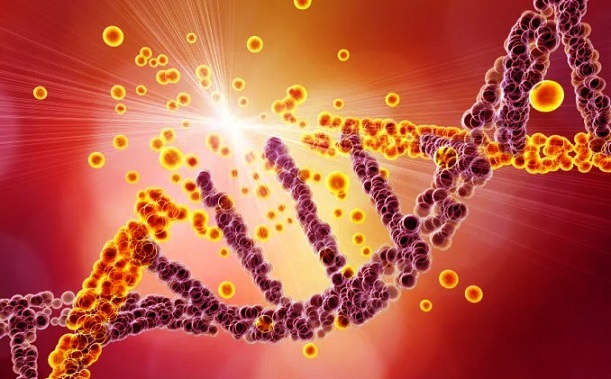Nikhil Prasad Fact checked by:Thailand Medical News Team Aug 20, 2025 6 months, 2 days, 1 hour, 15 minutes ago
Medical News: A Silent Aftermath of the Pandemic
A new study conducted by researchers from Damghan University, Islamic Azad University of Damghan, Jiroft University of Medical Sciences, Torbat Jam Faculty of Medical Sciences, and Mashhad University of Medical Sciences in Iran has shed light on a troubling legacy of COVID-19. Even after the virus has cleared, many patients continue to experience lingering health problems. Known as post-COVID-19 syndrome or long COVID, these persistent issues range from fatigue and breathing problems to chest pain and memory difficulties. This
Medical News report reveals that one possible reason behind these long-term symptoms could be hidden deep inside the body’s genetic material—through damage to DNA itself.
 COVID-19 Leaves Behind Lasting DNA Damage-in-Survivors
DNA Damage Found in Post-COVID Patients
COVID-19 Leaves Behind Lasting DNA Damage-in-Survivors
DNA Damage Found in Post-COVID Patients
To investigate this, scientists carried out a cross-sectional study on patients hospitalized with COVID-19 at Kausar Semnan Hospital in Iran. They used a test called the comet assay, which detects DNA damage in cells, to compare COVID survivors with healthy individuals. The findings were alarming. Patients who had recovered from COVID-19 showed much higher levels of DNA damage than those who had never been infected. The most severe DNA damage was found in patients who had been intubated and placed in intensive care. On average, these patients showed nearly 30% DNA damage, compared to less than 10% in the healthy control group.
More Severe COVID-19 Means More Genetic Instability
The study highlighted a direct connection between the severity of COVID-19 and the level of DNA damage. Those who experienced critical illness in intensive care units had the most severe genetic injury, followed by moderate ICU cases, while even patients with mild disease outside the ICU still showed significant DNA damage. This indicates that SARS-CoV-2 may leave behind a biological scar, disrupting the stability of human genetic material. Such genomic instability could explain why some survivors continue to suffer from long-lasting symptoms months after recovery.
Symptoms Linked to DNA Damage
The researchers also reported that the patients who had the highest DNA damage were the ones experiencing the most severe lingering symptoms. Breathlessness, fatigue, dry cough, loss of taste and smell, and muscle pain were among the most common complaints. For example, over 50% of severe ICU survivors still suffered from chronic fatigue, while more than one-third reported the loss of smell and taste. These findings suggest that damaged DNA may play a central role in driving the ongoing health struggles of long COVID survivors.
Why This Matters for the Future
The study raises serious concerns about the long-term health of people who have survived COVID-19. DNA damage, if left unrepaired, can lead to accelerated aging, chronic inflammation, autoimmune disorders, or even increase the risk of cancer. The researchers warn that COVID-19 should not only be viewed as an acute infection but also as a potential trigger
for long-lasting cellular damage. Understanding how the virus destabilizes human DNA could open doors to new treatments that help repair or protect genetic material, offering hope for millions battling post-COVID complications.
Final Thoughts
The study makes it clear that COVID-19 leaves behind more than just temporary symptoms. The virus appears to damage the very foundation of our biology—our DNA. This lasting disruption may explain why so many people continue to suffer even months after recovery. Recognizing this danger is critical for planning long-term care, developing targeted therapies, and protecting survivors from future health complications. In conclusion, COVID-19 is not only a short-term respiratory illness but also a silent instigator of genetic instability that could shape the health of survivors for years to come.
The study findings were published in the peer reviewed journal: BMC Infectious Diseases.
https://link.springer.com/article/10.1186/s12879-025-11419-y
For the latest COVID-19 News, keep on logging to Thailand
Medical News.
Read Also:
https://www.thailandmedical.news/news/dna-methylation-changes-link-long-covid-to-chronic-fatigue-in-new-study-by-new-zealand-scientists
https://www.thailandmedical.news/news/sars-cov-2-nsp1-protein-stalls-human-dna-replication-contributing-to-dangerous-long-term-health-issues
https://www.thailandmedical.news/news/covid-19-causes-exponential-dna-methylation-in-the-tas2r38-gene
